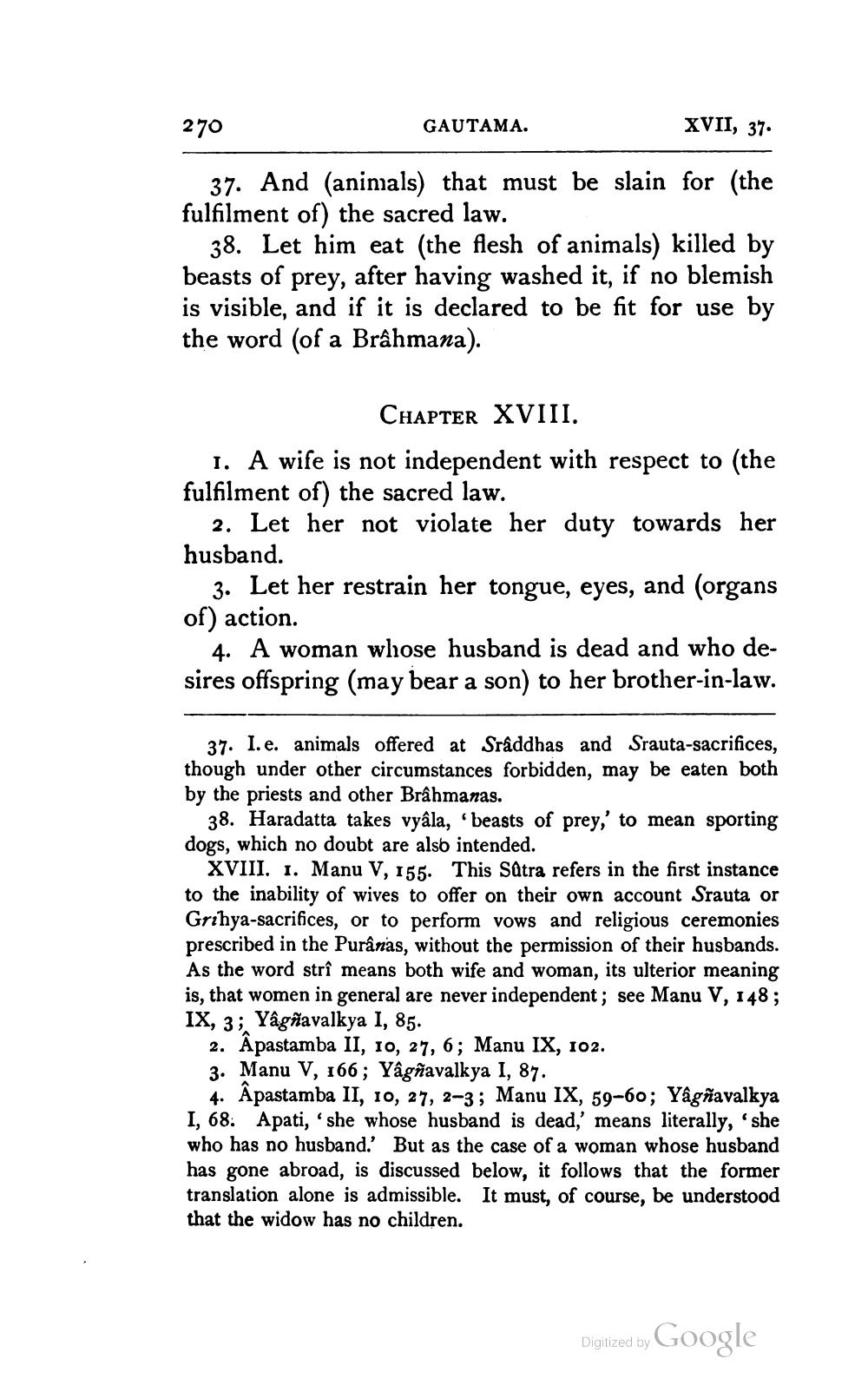________________
270
GAUTAMA.
XVII, 37.
37. And (animals) that must be slain for (the fulfilment of the sacred law.
38. Let him eat (the flesh of animals) killed by beasts of prey, after having washed it, if no blemish is visible, and if it is declared to be fit for use by the word (of a Brâhmana).
CHAPTER XVIII. 1. A wife is not independent with respect to the fulfilment of) the sacred law.
2. Let her not violate her duty towards her husband.
3. Let her restrain her tongue, eyes, and (organs of) action.
4. A woman whose husband is dead and who desires offspring (may bear a son) to her brother-in-law.
37. I.e. animals offered at Sraddhas and Srauta-sacrifices, though under other circumstances forbidden, may be eaten both by the priests and other Brâhmanas.
38. Haradatta takes vyâla, 'beasts of prey,' to mean sporting dogs, which no doubt are also intended.
XVIII. 1. Manu V, 155. This Satra refers in the first instance to the inability of wives to offer on their own account Srauta or Grihya-sacrifices, or to perform vows and religious ceremonies prescribed in the Puranas, without the permission of their husbands. As the word strî means both wife and woman, its ulterior meaning is, that women in general are never independent; see Manu V, 148; IX, 3; Yâgñavalkya I, 85.
2. Apastamba II, 10, 27, 6; Manu IX, 102. 3. Manu V, 166; Yâgħavalkya I, 87.
4. Apastamba II, 10, 27, 2-3 ; Manu IX, 59-60; Yâgñavalkya I, 68. Apati, she whose husband is dead,' means literally, she who has no husband.' But as the case of a woman whose husband has gone abroad, is discussed below, it follows that the former translation alone is admissible. It must, of course, be understood that the widow has no children.
Digitized by Google




